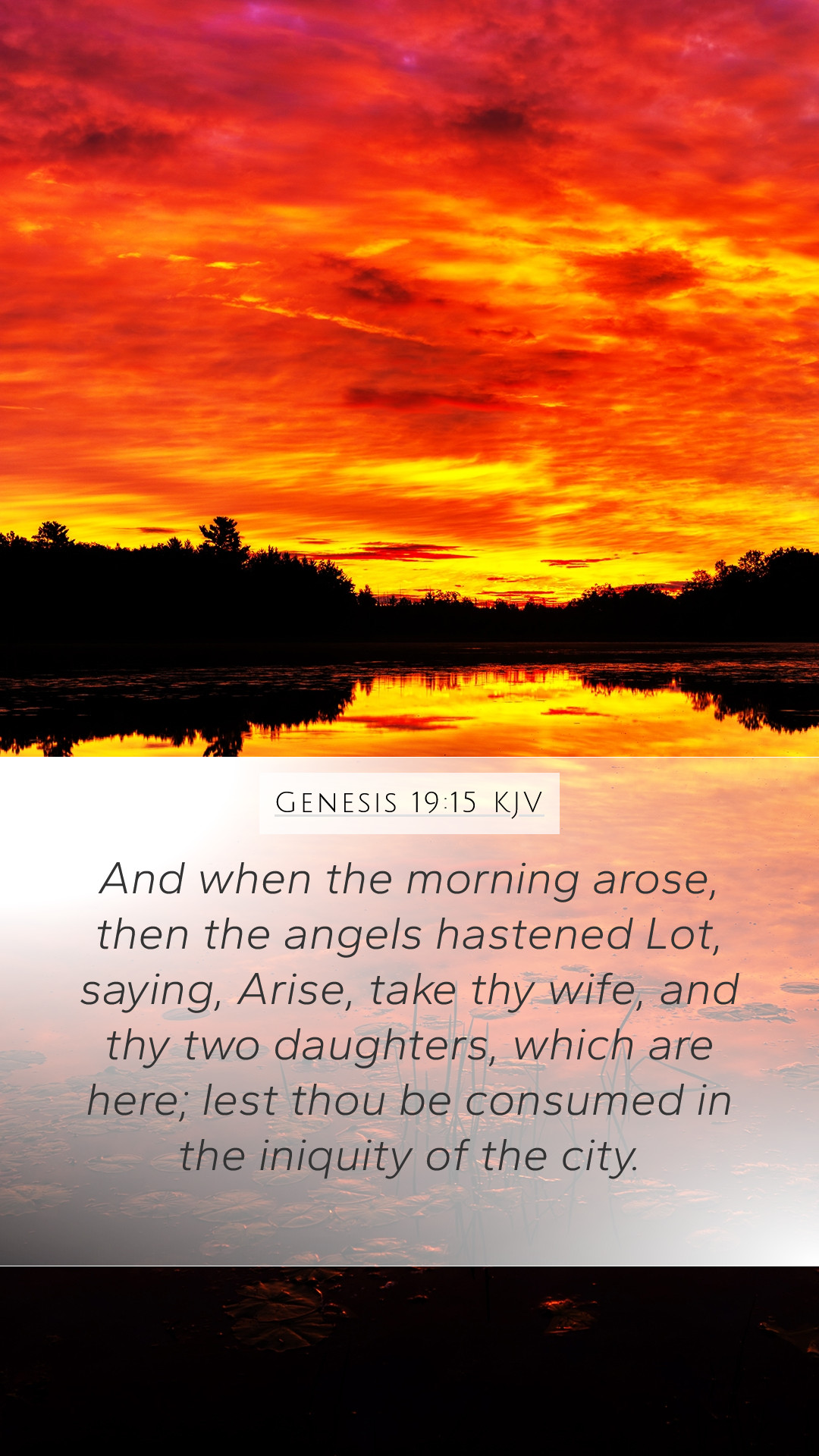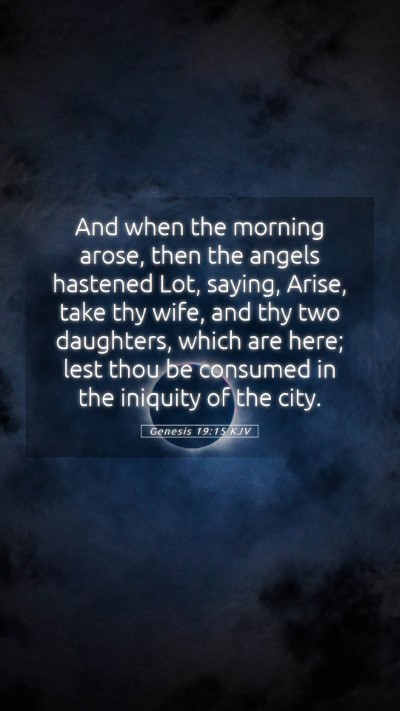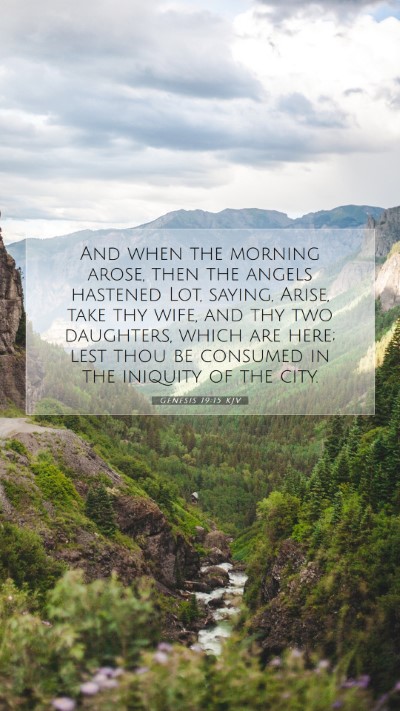Genesis 19:15 - A Comprehensive Bible Verse Commentary
Genesis 19:15: "And when the morning arose, then the angels hastened Lot, saying, Arise, take thy wife, and thy two daughters, which are here; lest thou be consumed in the iniquity of the city."
Understanding Genesis 19:15
This verse marks a critical moment in the narrative of Sodom and Gomorrah, as it emphasizes the urgency with which Lot is called to flee from impending destruction. The angels, acting as messengers from God, are not just delivering a warning but also facilitating an escape for Lot and his family. The language used reflects the seriousness of the situation—time is of the essence.
Analysis from Public Domain Commentaries
- Matthew Henry’s Commentary:
Henry emphasizes the mercy shown to Lot amidst the judgment of the cities. He notes that Lot's deliverance was not just a personal salvation but a demonstration of God's grace. The insistence of the angels signifies that divine rescue is available even at the last moment for those who heed the call.
- Albert Barnes’ Exposition:
Barnes points to the role of angels in human affairs, illustrating their function as protectors and messengers. He interprets the urgency as a reflection of the gravity of sin in Sodom and Gomorrah, drawing attention to the impending destruction and the need for immediate action for salvation.
- Adam Clarke’s Commentary:
Clarke elaborates on the familial aspect of the warning, highlighting the inclusion of Lot's wife and daughters. He reflects on the societal context, where Lot hesitated despite the clear directive from heaven, shedding light on human reluctance in the face of divine instructions.
Bible Verse Meanings and Interpretations
The verse draws attention to several key themes in biblical exegesis:
- Divine Intervention: The angelic intervention signifies God's concern for the righteous amidst wickedness.
- Imminent Judgment: The urgency reflects the immediacy of judgment and the necessity of heeding God’s warnings.
- Family Salvation: Lot’s family unit is a focus for salvation, teaching that divine mercy extends to those who are connected to the righteous.
Historical Context of Genesis 19:15
In understanding this scripture, it is vital to explore the historical context of Sodom and Gomorrah. These cities were known for their grave sins and moral corruption, which warranted divine judgment. The background provides insight into the severity of the situation and the reasons behind the urgency from the angels.
Application of Genesis 19:15 to Daily Life
Genesis 19:15 offers profound implications for modern believers:
- The call to discern when to leave behind sinful environments.
- The necessity of responding swiftly to God’s call.
- The importance of protecting one’s family and loved ones from spiritual destruction.
Understanding Scripture: Cross References
In addition to the direct implications found in Genesis 19:15, several Bible cross-references provide further understanding:
- Matthew 24:37-39: The warnings of judgment and the necessity of preparedness.
- Luke 17:28-30: Jesus parallels the days of Lot with the coming judgments.
- 2 Peter 2:6-9: A commentary on the destruction of Sodom and Gomorrah as an example of divine judgment.
Conclusion
Genesis 19:15 serves as a powerful reminder of God's mercy and the urgent call to righteousness. This scripture not only illustrates the historical account of Lot but also resonates with believers today, encouraging spiritual vigilance and prompt responsiveness to divine guidance.
Bible Study Insights
For those engaged in bible study groups and online bible study, the lessons derived from this passage can enrich understanding of scripture analysis and biblical exegesis. Employing bible study tools and resources can provide deeper insights into these themes and their implications for life today.
Final Thoughts
As believers seek the meaning of Bible verses and understanding of scripture, Genesis 19:15 stands as a pivotal point for both study and application in the contemporary context. Reflecting on such passages encourages a broader understanding of God's interaction with humanity throughout the ages.


